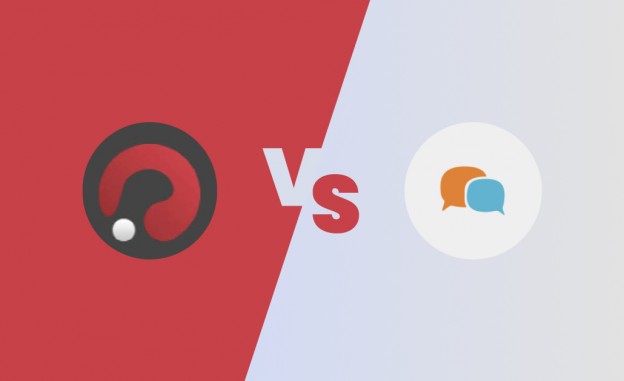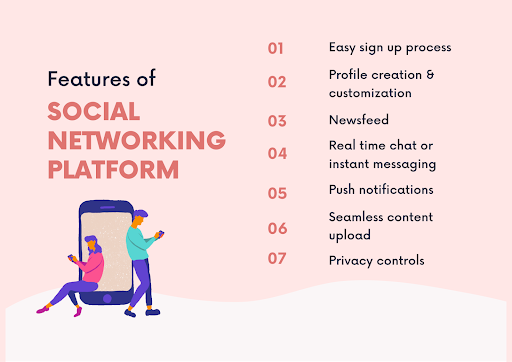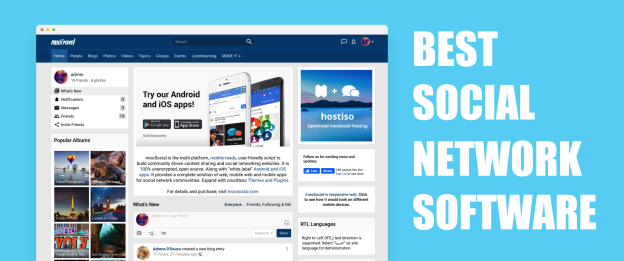
So, you’re in the market for a platform to build your own social network, huh? Maybe you’ve stumbled upon Wowonder, with its impressive list of features and tempting initial price tag. But before you jump in, let’s have a real talk about why MooSocial could be the smarter, more sustainable choice for your long-term vision. Think of it like this: choosing a social network platform isn’t just about the bells and whistles you get right away; it’s about the foundation you’re building on, the support you can count on, and the headaches you can avoid down the road.
I’ve done some digging, comparing these two PHP-based platforms, and the insights are pretty clear. While Wowonder might seem like the flashier option initially, MooSocial offers a more stable, professionally supported, and ultimately, less risky path to creating a thriving online community. Let’s break down why.
Feature Face-Off: Beyond the Checklist
On paper, both MooSocial and Wowonder boast a wide array of features – activity feeds, private messaging, groups, pages, events, and more. But the devil’s in the details, right? It’s not just about having the features; it’s about how well they work, how seamlessly they integrate, and how reliable they are in the long run.
Wowonder definitely comes packed with a lot of trendy features right out of the box, like short-form videos (“Reels”), live streaming, and even AI content generation (though that last one uses a credit system). That can sound exciting, especially if you’re aiming for a platform that mirrors all the latest social media crazes.
However, this “kitchen sink” approach seems to come at a cost: stability. User reviews for Wowonder frequently mention buggy updates that break functionality. Imagine launching your community and then having a core feature go haywire after a routine update. Not fun!
MooSocial takes a more measured approach. While it might not have every single cutting-edge feature built into the base script, its core is known for being robust and stable. Think of it as a solid foundation you can build upon. Need advanced features like real-time chat? MooSocial offers well-supported, first-party plugins like MooChat. This modularity allows you to add the functionality you need without bloating the core with features you might not use, potentially leading to better performance and fewer conflicts. Plus, MooSocial emphasizes the seamless integration between its own plugins, promising a “zero headache” experience. If you’re looking to create, say, a business directory with an integrated store, MooSocial’s own Store plugin is designed to work smoothly with their Business Page plugin. With Wowonder, you might be piecing together plugins from different developers, hoping they play nicely together.
Here’s a quick snapshot:
The Tech Behind the Scenes: Future-Proofing Your Platform
Let’s talk about what’s under the hood. The technology a platform is built on significantly impacts its performance, security, and how easy it is to maintain and customize in the long run.
MooSocial is built on CakePHP, a mature and stable framework for PHP applications. CakePHP has been around for a long time and is known for its conventions and structured approach to development, which contributes to the platform’s overall stability and reliability. This choice provides a solid, well-understood foundation for a social networking site. For a business, this means a predictable and dependable core system.
On the other side, Wowonder is built using native PHP without a formal MVC framework, relying on Bootstrap for its frontend. While native PHP can be fast if done well, it often lacks the organization and maintainability of a structured framework like Laravel. Even more concerning are reports of Wowonder using significantly outdated dependencies . Think of it like building a house with old, potentially brittle materials. It might stand for a while, but repairs and expansions could become a nightmare.
This difference in technical foundations is a major advantage for MooSocial. Investing in a platform that’s embracing modern technologies like Laravel and VueJS means you’re investing in better security, easier maintenance, and a larger pool of skilled developers should you need custom work.
White Label Social Network Cost: Beyond the Initial Price Tag
This is where things get really interesting. Wowonder’s initial license fee on CodeCanyon (around $120 for a regular license can look incredibly appealing. It’s a low barrier to entry, and you get a seemingly feature-rich platform. However, this low price can be misleading when you consider the total cost of ownership (TCO).
Think about it: in today’s mobile-first world, having native mobile apps for both iOS and Android is almost a necessity. With Wowonder, these apps aren’t included in the core purchase; they’re sold separately on CodeCanyon, often by different developers. You could easily end up spending hundreds of dollars just to get basic mobile apps. And what happens if an update to the core Wowonder script breaks an API that one of your independently purchased mobile apps relies on? You’re stuck in the middle, trying to coordinate with different developers for a fix.
MooSocial takes a different approach. While its initial license costs can be higher (ranging from $149 to $1669, with sales often available [ref: 8]), the higher-tier packages, like the Deluxe and Ultimate plans, include licenses for their native mobile apps (with full source code!) . This bundled approach offers far more transparency in terms of cost and significantly reduces the risk of integration headaches. Yes, the upfront investment might be larger, but you’re getting a fully integrated ecosystem where the core platform, plugins, and mobile apps are all developed and supported by the same team. This means better compatibility, unified updates, and a single point of contact for support.
Let’s look at a simplified cost comparison for a feature-rich site with mobile apps:
While the initial cost for a basic Wowonder setup might seem lower, once you factor in essential components like mobile apps and potentially premium plugins, the price difference can shrink significantly, if not disappear entirely. And remember, the Wowonder setup involves managing multiple vendors and hoping for compatibility, whereas MooSocial offers a cohesive, supported package.

Support and Community: Who Has Your Back?
When you’re running your own social network, having reliable support is crucial. Issues will inevitably arise, and you’ll need someone to turn to for help.
MooSocial offers a professional, multi-channel support system, including a ticket system, Skype, and online chat. Their support is generally praised by users for being helpful and responsive [ref: 1]. You can also find a wealth of self-service resources like a knowledge base, a community wiki, and an active forum. This comprehensive support network provides peace of mind knowing that help is available when you need it.
Wowonder’s support is primarily provided by the author through CodeCanyon [ref: 3]. While some users report positive experiences, there are also numerous concerning complaints about unresponsive support, revoked purchases, and even unethical behavior. This inconsistency makes relying on their official support a gamble. Furthermore, user reviews often criticize Wowonder’s documentation as sparse and unhelpful, and there’s no official community forum to turn to for peer support .
For any serious project, the reliability and quality of support are non-negotiable. MooSocial’s professional and well-regarded support system provides a significant advantage and reduces the risk of being stranded when issues arise.
Making the Right Choice for Your Social Network
Choosing the right platform for your social network is a critical decision. While Wowonder might tempt you with its low initial cost and extensive feature list, it’s crucial to look beyond the surface. MooSocial offers a more stable, secure, and professionally supported foundation for building a long-term community. Its commitment to modern technologies, transparent pricing for a comprehensive ecosystem (especially when it comes to mobile apps), and reliable support make it a compelling alternative.
If you prioritize:
- Stability and Reliability: A platform that’s known for being bug-free and having a solid codebase.
- Professional and Responsive Support: A team that has your back and can help you when issues arise.
- A Fully Integrated Ecosystem: Where the core platform, plugins, and mobile apps are all designed to work seamlessly together and are supported by a single vendor.
- Future-Proof Technology: A platform that’s embracing modern frameworks for better security, maintainability, and scalability.
- Predictable Costs: Knowing what you’re paying for a complete, mobile-ready solution without hidden fees or the need to manage multiple vendors.
Then MooSocial is likely the better choice for your social network endeavor. It’s an investment in a stable and sustainable future for your online community, one where you can focus on growth and engagement rather than constantly battling bugs and inconsistent support. So, take a closer look at MooSocial – it might just be the winning platform you’ve been searching for.








